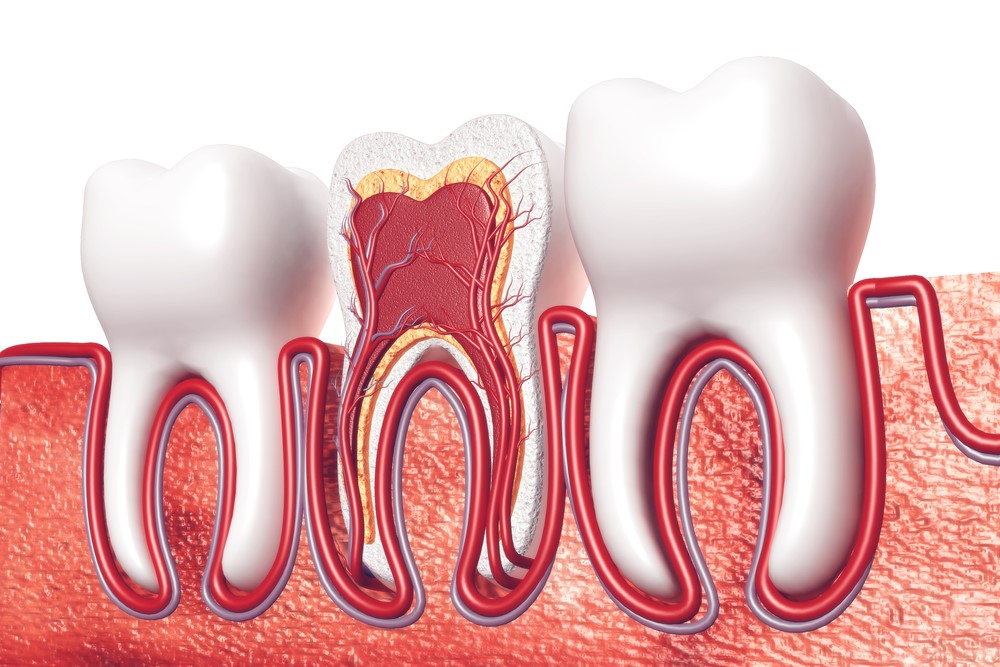If you're getting a root canal in Ottawa, then it's important that you know as much about the procedure as possible. Specifically, you need to be familiar with what causes the need for one, what takes place during the process, and what to expect during recovery. But first, let's talk about what a root canal is.
What is a Root Canal?
Beneath the white enamel of your teeth is a soft tissue that is referred to as pulp. The pulp has nerves, blood vessels, and connective tissue. And all of these elements are what surrounds your teeth as they develop. Once your tooth is fully matured it no longer needs the pulp. So if the pulp becomes infected, the pulp can be removed in order to save the tooth. This removal process is referred to as a root canal.
What is The Process of a Root Canal
The root canal process is pretty simple and straight-forward. First, the dentist will examine and x-ray the tooth. Next, an anesthetic will be administered. Once the tooth is completely numb, a protective sheet will be placed over the area so that the tooth is isolated and remains free from saliva. The dentist will then create an opening in the crown of your tooth, clean the pulp from its chamber and canals, and shape the empty space for your filling. Then the canals are filled with a material that is biocompatible and sealed with cement. Finally, after a couple of weeks, the dentist will place a permanent crown on top. If the crown needs to be more stable, a supporting post may also be placed within the canal.
Reasons a Root Canal is Needed
Typically, there are three reasons that dentists at the Upper Hunt Club Dental Centre in Ottawa may recommend a root canal. They may notice that you have deep decay, and if this is left untreated it can lead to pain, infection, and the loss of your tooth. If a cracked or chipped tooth is discovered and it is severe enough, then it may result in an exposed nerve. There's also a chance that they may notice that you have an abscess. In this case, the tooth has already become infected by decay.
What is The Recovery Process For a Root Canal?
When the root canal is complete, the anesthetic will slowly begin to wear off. As it does, you may experience mild sensitivity or pain. This is usually due to the cleaning process. This feeling should only last a couple of days. In most cases, you will be prescribed an over-the-counter pain reliever such as Tylenol or Advil. It is important to mention any current prescriptions you are on so that these medications don't have a negative interaction. Also, during this phase, you should avoid eating foods that are hard.
Other Important Information About Root Canals
It is important to keep in mind that the better your oral health practices, the sooner the pain will go away. This means that there are several things that you should consider doing immediately after your root canal. For example, you need to make sure that you brush your teeth twice a day. You should brush in gentle, circular motions so that it doesn't irritate your tooth. Take the time to floss once a day so that you can stave off any future infections. Stay away from sugary drinks and foods as is this often leads to bacteria and cavities. You should also make sure to schedule cleanings regularly. Not only will following these tips help to speed up the recovery process, but it will also ensure that the new crown lasts for several years and that the teeth around it remain healthy.
Luckily, there have been several advances made in technology over the years. So root canals are a relatively painless and routine process. If you're considering getting a root canal in Ottawa visit the Upper Hunt Club Dental Centre located in Ottawa. Contact us today to book an appointment or to learn more about the procedure. Also, remember to have regular dental check ups, even if you don’t have any dental issues, it is important to have regular cleanings and check ups to keep up oral health and to help avoid any issues from arising













